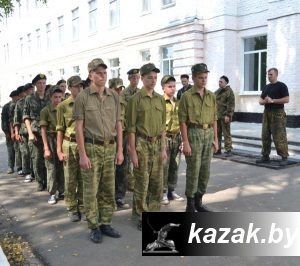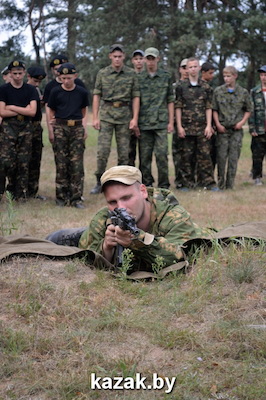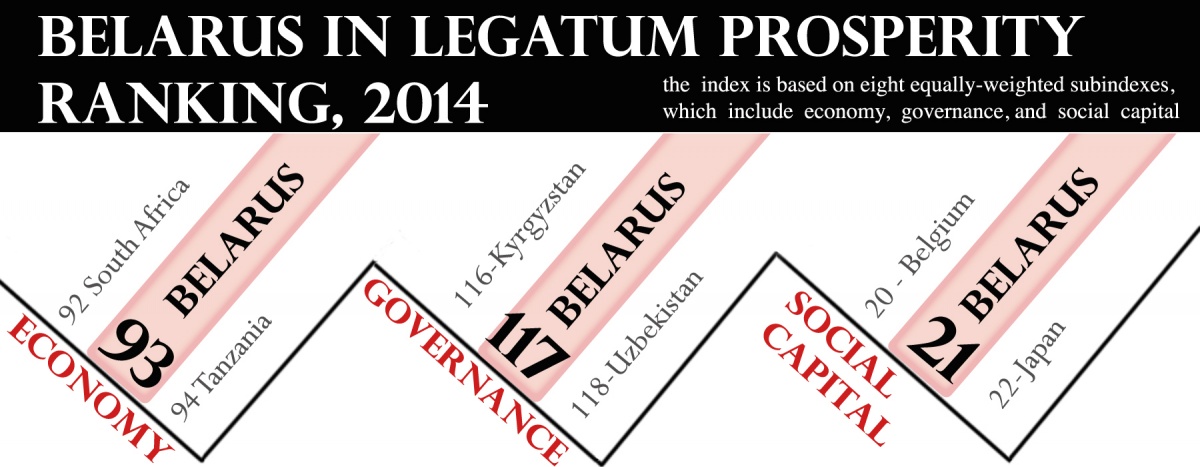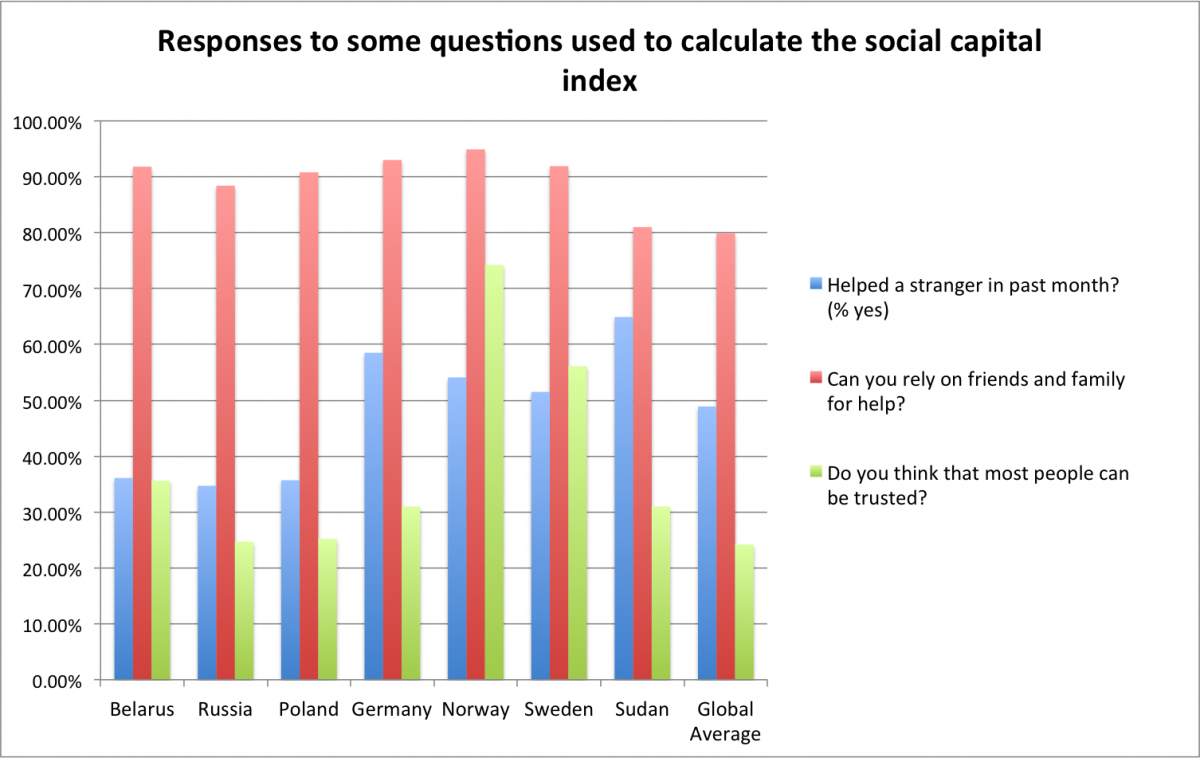Pro-Russian Groups Become More Active in Belarus

photo: kazak.by
On 9 November 2014 in Pastavy – a city in the Vitebsk Region of Belarus – members of the Holy Rus' Movement distributed flyers with a call for the unification of the 'Russian World'. Many similar events and military camps now taking place for Belarusian youth near Minsk and Vitebsk and exhibit a rather disturbing trend.
At camps organised by organisations such as Kazachi Spas or The Orthodox Brotherhood, soldiers and veterans instruct Belarusian youth and teenagers about the tactics employed by sabotage groups and how to handle weapons and survive. The Ukrainian 2014 revolution and subsequent events clearly triggered pro-Russian centres and groups to activate themselves.
Development of Ideological and Religious Centres
Kazachi Spas and The Orthodox Brotherhood promote themselves in Belarusian media as anti-globalisation, traditional and orthodox communities. They also pay a great deal of attention to religious and pro-Russian ideological aspects. In order to be able to work effectively, these radical organisations need support from the authorities in Belarus.
Opened in June 2014 the Centre of Russian Culture and Science in Brest became the first official regional pro-Russian headquarter in Belarus founded by Rossotrudnichestvo. According to the founders of the centre, institutions like theirs launched their projects around the world as a result of a personal order from none other than Vladimir Putin himself.
Trying to maintain Russia's influence in the CIS, Putin increased the budget of Rossotrudnichestvo nearly four times in 2014 – up to $300m. Rossotrudnichestvo is a federal agency in charge of maintaining Russia's influence abroad. Besides its new headquarters, Rossotrudnichestvo finances Rus Molodaya – an ultra-right movement with branch offices in Belarus. Closely linked to the ultra-nationalist paramilitary group Russian National Unity, Rus Molodaya also aims to establish a “New Russian World”.
 Other Russian NGOs have become more visible too. Members of the Russian Public Movement for the Spiritual Development of the People for the State and Spiritual Revival of Holy Rus' (Holy Rus') also became active in Belarus in 2014. Registered in Russia, this NGO has basically transformed into a cult of pro-Russian ideology. It works on spiritual development and unity of citizens of all nationalities living in Russia and has several offices in Belarus.
Other Russian NGOs have become more visible too. Members of the Russian Public Movement for the Spiritual Development of the People for the State and Spiritual Revival of Holy Rus' (Holy Rus') also became active in Belarus in 2014. Registered in Russia, this NGO has basically transformed into a cult of pro-Russian ideology. It works on spiritual development and unity of citizens of all nationalities living in Russia and has several offices in Belarus.
The more recent activity of Holy Rus' in Belarus includes several other gatherings including, for example, in Maladzyechna near Minsk or a November 2014 meeting in Vitebsk. According to the Holy Rus’s web site they are also distributing leaflets at holidays in several locales like Homel, Vitebsk and Postavy. According to these leaflets, Belarus and Ukraine should become part of an indivisible Holy Rus' and unite with Russia in the future.
…and Even More Radical Organisations
Some other radical organisations have sprung up in 2014 as well, including the Military-Patriotic Orthodox Brotherhood named after he Holy Prince Boris and Gleb Tolochinsky (the Brotherhood) and paramilitary patriotic Cossack club Kazachi Spas. Oleg Plaksitsky, the Leader of the Brotherhood, is also an Orthodox priest in Belarusian town Drutsk. Members of the Brotherhood like to parade the symbols of the Ukrainian separatists. As Plaksitsky insists, as symbols that denote their anti-fascist principles.
On his web site Plaksitsky justifies young people participating in military training by saying they need to be ready to fight neo-fascism. He also states that Ukraine has become closely linked to fascism, and refers to the Ukrainians’ participation in punitive operations on the territory of modern day Belarus during World War II as proof.
Since 2013, Plaksitsky has organised camps in cooperation with military base number 71325 of the Ministry of Defence of Belarus in the village of Zaslonava near Minsk. This year at the patriotic summer camps near Minsk instructors taught youth mountaineering, how to handle an automatic weapon and how to find your way in and survive in a forest. The priest also taught the youth about the values of the Orthodox Church and its role in Russian culture.
Open Passage Provided by the Belarusian Authorities
The much more developed and influential group Kazachi Spas has been working in Belarus since February 2010. From the beginning Kazachi Spas co-operated with the Belarusian Ministry of Defence, Cossack organisations from all over the former Soviet Union and with the 45th Detached Reconnaissance Regiment located in Russia. Interestingly, the 45th Detached Reconnaissance Regiment took part in the First and the Second Chechen wars, the Georgian-Ossetian conflict and the Georgian-Abkhaz conflict.
Cooperation with the Belarusian authorities is a clear indication about the real level of support for pro-Russian paramilitary organisations inside the country. From time to time the Belarusian Ministry of Defence lets Kazachi Spas visit and train at Belarusian military bases. The 45th Detached Reconnaissance Regiment, the Russian Union of Veterans of the intelligence and security services provide instructors and training materials.
Teaching About Russia and The Orthodox Church
For its younger participants, Kazachi Spas organises trips to various camps in several countries of the former USSR. Kazachi Spas presents its work to parents as a kind of recreational summer camp. Similar Cossack organisations also thrive in Kyrgyzstan, Kazakhstan, Armenia and Moldova. Military training camps for youth were already functioning in Crimea back in 2004. After the annexation of Crimea, the camp has continued its work but now with Russian instructors.
According to the Spas web site nearly 150 youth between 8 and 17 years old participated in its camps in 2014. The youth read about Soviet and Russian history and the role of the Orthodox Church in Belarus. Ideological work in the camps includes making presentations on Belarus and Ukraine as historical parts of the 'Russian World'.
According to the web site of Kazachi Spas “youth should actively train and know how to handle weapons in order to defend Belarus and prevent a Ukrainian scenario in the future”. Without further details about whom the youth should defend Belarus from, such statement are controversial.
In the past only a few organisations like the ultra-nationalist paramilitary group Russian National Unity carried out any kind of openly pro-Russian activity in Belarus. Nowadays organisations also lean heavily on religious and ideological indoctrination. Cossack movements have proven their efficacy in Ukraine. Their members were among the first separatists in Crimea, Lugansk and Donetsk.
A Real Threat to Belarusian Independence?
The 2015 Presidential Elections in Belarus and the Ukrainian Maidan revolution in 2014 launched a new wave activity by pro-Russian organisations. And it seems that the Belarusian authorities are not doing much to prevent these groups from carrying out their work. Perhaps the authorities hope that the paramilitary groups inside the country will prove to be an additional force against the opposition for the Belarusian regime. However, a more important question is whether or not Lukashenka can actually control them.
Lukashenka tries to reduce his dependency on Russia to maintain his post. But he cannot openly confront Russia due to Russia's economic and political support. At the moment, both Belarusian civil society and the authorities are in the same boat and should think about how they might be able to prevent Ukraine-style destabilisation efforts by pro-Russian paramilitary groups in Belarus.
Strengthening Belarusian national and civic identity as well as carrying out information campaigns about the threat of full dependency on Russia can play an important role in preventing a similarly violent scenario from taking place in Belarus.
Raman Kachurka
Raman Kachurka is based in Brest and holds an MA in International Economics from the University of Warsaw.






